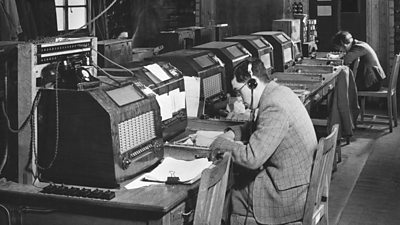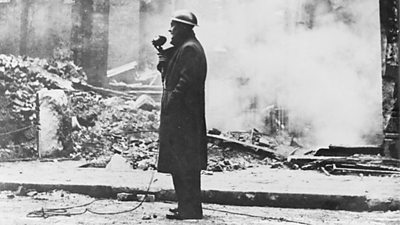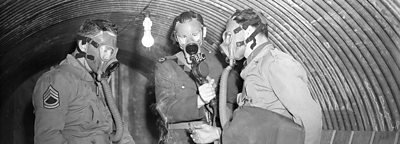The ±«Óãtv reinvented itself during the Second World War and public perception of the institution changed dramatically. It more than doubled in size and adopted a new culture and outlook. The television service, still in its infancy at the outbreak of war, closed down, but ±«Óãtv Radio proved more powerful than ever.
Overseas language services expanded and at home ±«Óãtv Radio was reconfigured to deliver the ±«Óãtv Service and the Forces Programme. Output evolved to reflect listeners' needs more closely and set a benchmark for future programming in news, drama, entertainment and education. The ±«Óãtv spoke to the nation and was the conduit for dialogue among listeners as never before.

Alongside its own programming activity the ±«Óãtv provided a vital information service, monitoring the broadcasts of other nations, identifying foreign propaganda stations, and using its technology in innovative ways to assist the nation in the long struggle for victory.
The ±«Óãtv itself suffered directly from the events of war: Broadcasting House and Maida Vale premises were bombed. Early on it was under pressure to counter the Nazi propaganda broadcasts of 'Lord Haw Haw' from Hamburg which, to the dismay of the Government, UK audiences found highly entertaining.

In 1944 George Orwell wrote that the words "I heard it on the ±«Óãtv" had a new meaning - "I know it must be true".
Early in the war, the ±«Óãtv's "bland offerings" were criticised, and its impartiality questioned. However as the war progressed, people on the home front and in the forces saw the ±«Óãtv as a lifeline of information. Even Hitler's high command are said to have tuned to the ±«Óãtv, so misleading did they find their own news broadcasts.
